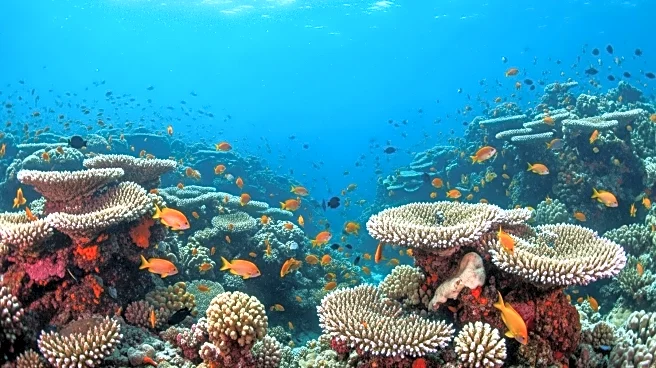What's Happening?
A scientific expedition led by Uruguayan researchers has discovered thriving deep-sea coral reefs off the coast of Uruguay. The reefs, home to numerous species vulnerable to extinction, were found to be healthier and more diverse than expected. The team, led by Dr. Alvar Carranza, identified at least 30 new species, including sponges, snails, and crustaceans. The expedition also explored the wreck of the ROU Uruguay, a ship that now serves as a reef habitat. The findings highlight the rich biodiversity of the region's marine ecosystems.
Why It's Important?
The discovery of thriving coral reefs and new species in Uruguayan waters is significant for marine conservation efforts. These findings provide critical data that can inform the management and protection of marine resources in the region. The identification of new species adds to the global understanding of marine biodiversity and the ecological importance of deep-sea environments. This research could lead to increased conservation measures and policies aimed at preserving vulnerable marine ecosystems, which are crucial for maintaining ocean health and resilience.
Beyond the Headlines
The expedition's findings underscore the importance of deep-sea exploration in uncovering unknown aspects of marine life. The discovery of new species and thriving ecosystems challenges assumptions about the vulnerability of deep-sea environments and highlights the need for continued research and conservation efforts. The data collected will be instrumental in shaping future marine policies in Uruguay and could serve as a model for other nations with similar ecosystems.









